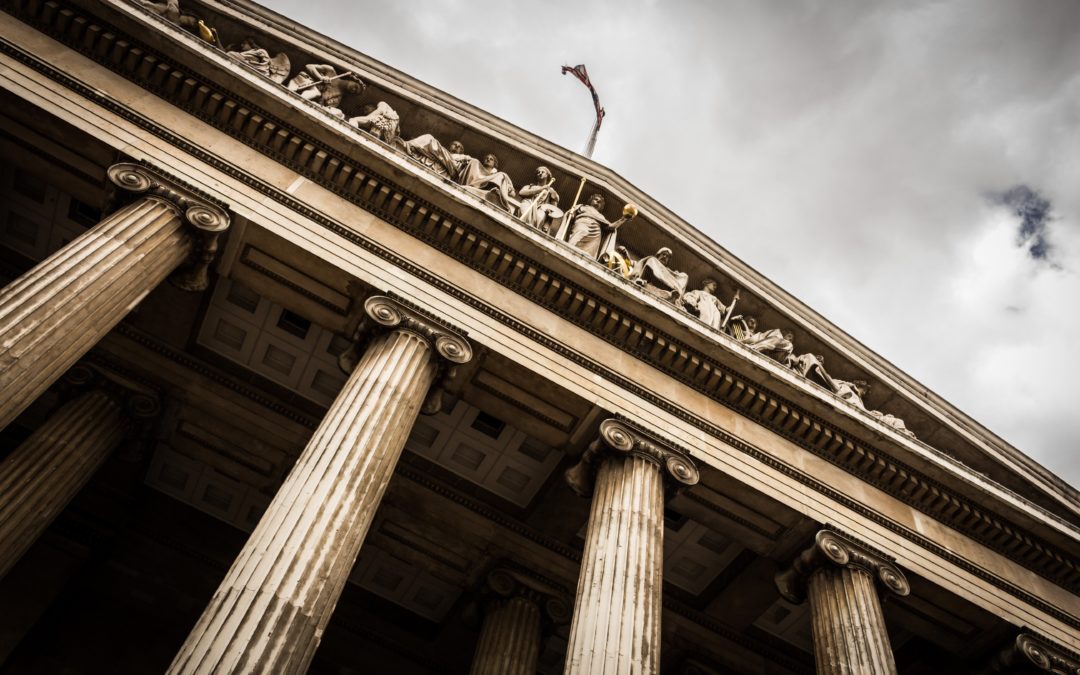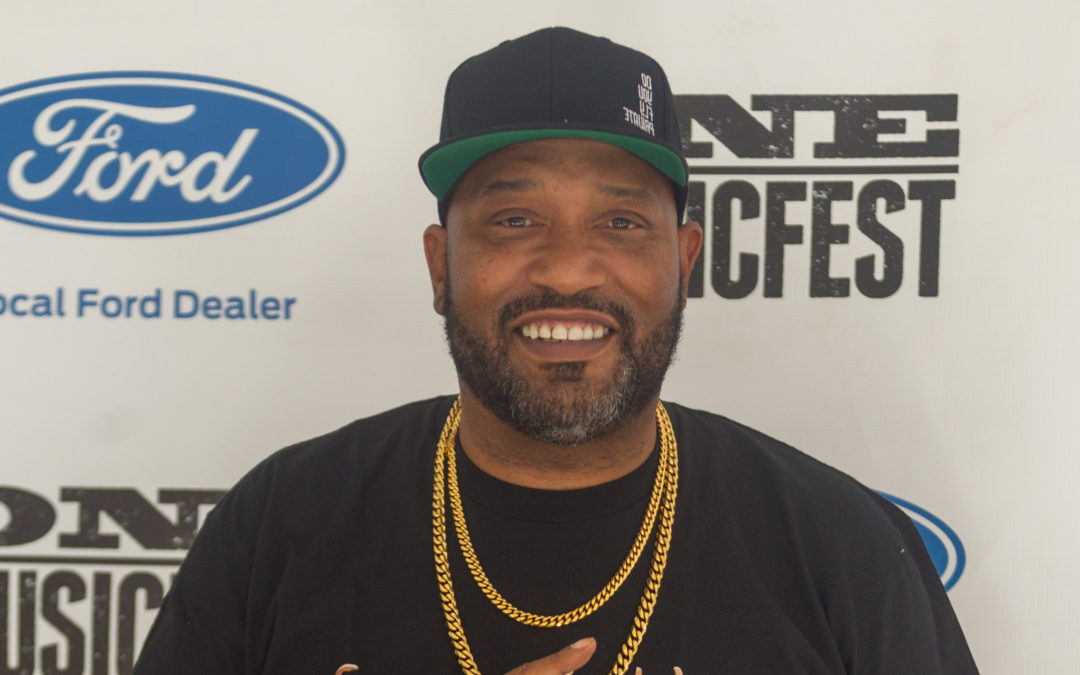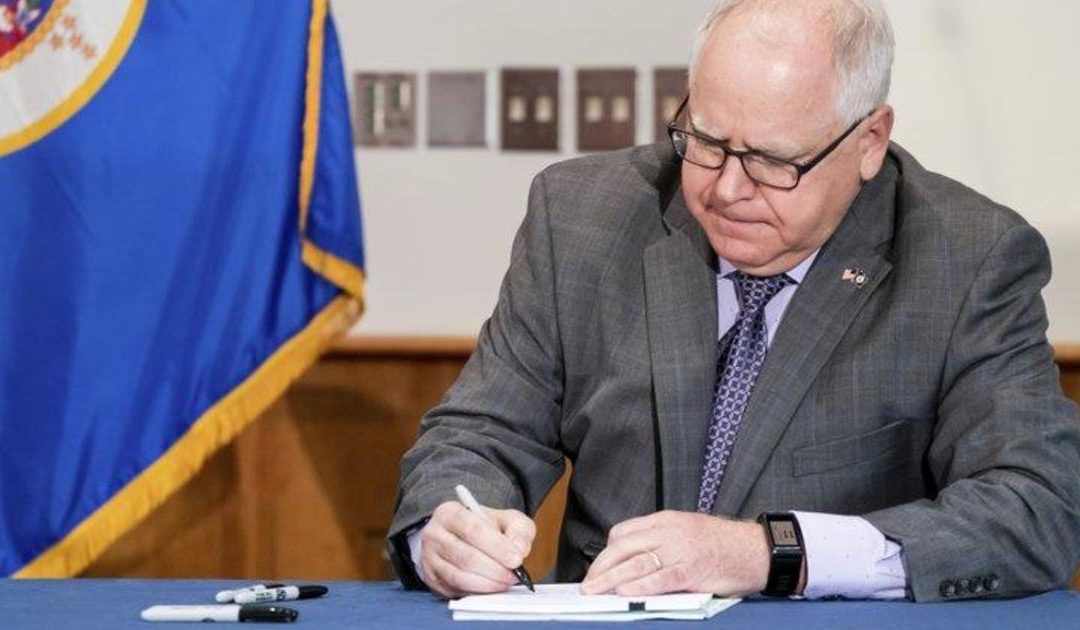
by Derrick T Lewis | Aug 2, 2023 | Latest, Social Justice, Uncategorized |
A solemn chapter in the quest for justice unfolds as former Shreveport Police Department officer Alexander Tyler appears in court, entangled in the aftermath of the fatal shooting of Alonzo Bagley, a Black man whose life was tragically cut short. The proceedings, which took place on July 24, marked a pivotal moment in a case that has drawn nationwide attention and heightened calls for accountability within law enforcement.
In a courtroom charged with emotion, Alexander Tyler, a white former officer, entered a plea of not guilty to charges stemming from the shooting incident that claimed the life of Alonzo Bagley in February. Tyler faces charges of first-degree negligent homicide and felony malfeasance, with prosecutors recently adding a second felony charge to the list. If found guilty, both counts carry potential sentences of up to five years in prison, a reflection of the gravity of the accusations.
The events leading up to the fatal encounter were captured on bodycam footage, a chilling testament to the realities of this tragic incident. The events transpired on February 3 when law enforcement were called to an apartment complex in the Shreveport, Louisiana region following reports of a domestic disturbance. What followed in the wake of their arrival would reverberate deeply within the community. Alonzo Bagley, a 43-year-old Black man, chose to escape the clutches of the authorities by vaulting from a balcony, setting in motion an intense pursuit on foot that would hold the attention of all those involved.
The bodycam footage revealed the pivotal moments that culminated in tragedy. As officers closed in on Bagley, Alexander Tyler discharged his weapon, striking Bagley in the chest. The visual documentation of the encounter has ignited a wave of outrage and intensified demands for transparency and accountability within the criminal justice system.
Proponents of accountability argue that while law enforcement officers indeed face perilous situations, the public expects that they will exercise sound judgment and adhere to strict guidelines, particularly when it comes to the use of lethal force. Tyler’s legal history, including two suspensions from the force and an ongoing investigation into previous violations, casts a shadow over his actions and raises questions about his fitness to serve as a protector of the community.
In response to these deeply troubling developments, community leaders, activists, and concerned citizens are rallying for a thorough and impartial investigation. The case of Alonzo Bagley’s death echoes a larger nationwide conversation about systemic issues within law enforcement and the urgent need for reform.
As the legal proceedings unfold, the outcome of this case will undoubtedly have significant implications, not only for the individuals involved but also for the broader movement for justice and accountability. The plea of not guilty signifies the beginning of a complex journey towards truth and justice, one that will require a steadfast commitment from all corners of society to ensure that the memory of Alonzo Bagley is honored and that incidents like this never happen again.

by Tanyette McCoy Davis | Feb 23, 2023 | Latest, Social Justice |
The senseless death of Tyre Nichols at the hands of police officers in Memphis, Tennessee, has sparked a national outcry for change. In response to this horrific injustice, Georgia lawmakers have reintroduced legislation that seeks to increase police accountability and provide greater transparency into their operations.
The legislation comes after Nichols, a 27-year-old Black man Tyre Nichols, was fatally shot by police in February. His death sparked protests and calls for reform from activists and community members. The proposed reforms would help to build trust between law enforcement and the communities they serve, and make sure that everyone is held accountable for their actions.
This tragedy led to the reintroduction of police accountability legislation in Georgia. The bill, which has been dubbed the “Tyre’s Law,” would require law enforcement officers to wear body cameras and have them turned on during all interactions with the public. It would also establish an independent review board to investigate officer-involved shootings.
The bill has been met with some opposition from law enforcement groups, who argue that it could make it harder for officers to do their jobs effectively. However, supporters say that these reforms are necessary in order to build trust between police and the communities.
The family of Tyre Nichols King has advocated for these reforms, as well as for the passage of a law that would make it a crime for officers to turn off their body cameras. They believe that these reforms will help to prevent future tragedies and hold officers accountable for their actions.
However, these reforms face significant challenges in passing into law. The Georgia Fraternal Order of Police has come out against the proposed reforms, and many lawmakers are resistant to making changes to the state’s laws on policing. With opposition from both law enforcement and some legislators, it will be difficult to get these reforms passed into law.

by Jonathan P-Wright | Jun 14, 2024 | Uncategorized |
Image credit: lev radin / Shutterstock.com
In a seismic decision that sent shockwaves through the entertainment industry, the hallowed halls of Howard University have echoed with the reverberations of a unanimous vote by the esteemed Board of Trustees. The verdict? To revoke the Doctor of Humanities honorary degree bestowed upon Sean “Diddy” Combs, a move that serves as a resounding rebuke of the mogul’s actions captured in a harrowing video that recently surfaced.
The Revocation: A Bold Stand Against Interpersonal Violence
The prestigious historically Black university, a bastion of education and empowerment, has taken an unequivocal stance against interpersonal violence. In a statement that resonated with clarity and conviction, Howard University declared, “Mr. Combs’ behavior, as captured in a recently released video, is so fundamentally incompatible with Howard University’s core values and beliefs that he is deemed no longer worthy to hold the institution’s highest honor.”
The video in question, a chilling glimpse into the dark underbelly of domestic abuse, depicted the Bad Boy Records founder in a shocking display of violence against his former partner, Cassie. The footage, which surfaced in 2016 but gained widespread attention only recently, showed Diddy assaulting the singer, kicking and dragging her in a hotel setting.
Stripping the Accolades: A Resounding Message
In a sweeping move that underscores the gravity of the situation, the Board of Trustees has not only revoked Diddy’s honorary degree but has also directed the university administration to take immediate and decisive action. This includes:
The university’s statement left no room for ambiguity, asserting, “All honors and privileges associated with the degree will also be revoked. Accordingly, the Board has directed that his name be removed from all documents listing honorary degree recipients of Howard University.”
Diddy’s Apology: Too Little, Too Late?
In the wake of the video’s release, Diddy issued an apology video, acknowledging the gravity of his actions. “I mean, I hit rock bottom but I make no excuses,” he said in May. “My behavior on that video is inexcusable. I take full responsibility for my actions in that video. I’m disgusted. I was disgusted then when I did it, I’m disgusted now.”
However, the sincerity of his remorse has been called into question by many, as the apology came years after the incident and only in the face of mounting public outrage and scrutiny.
A Chorus of Condemnation: Celebrities Speak Out
The release of the disturbing footage has sparked a wave of condemnation from various corners of the entertainment industry. Prominent figures such as John Legend, 50 Cent, and Ray J have voiced their disapproval of Diddy’s actions, further amplifying the calls for accountability and consequences.
The Legal Fallout: Lawsuits and Investigations
The fallout from the Cassie assault video has extended far beyond the revocation of Diddy’s honorary degree. In November of the previous year, prior to the footage’s release, Cassie filed a lawsuit accusing Diddy of rape and abuse throughout their relationship. While the suit was settled shortly after its filing, the allegations cast a long shadow over the mogul’s reputation.
Moreover, in March of 2024, Diddy’s Miami and Los Angeles homes were raided, suggesting that the legal implications of his actions may be far-reaching. The mogul is also facing a wave of other lawsuits in which he stands accused of rape and abuse, further compounding the mounting legal challenges he faces.
The Aftermath: A Tarnished Legacy?
The decision by Howard University to strip Diddy of his honorary degree and sever ties with him financially represents a seismic shift in the public perception of the once-revered mogul. What was once a celebrated career marked by groundbreaking achievements in the music industry now risks being overshadowed by allegations of violence and abuse.
As the legal battles continue to unfold and the court of public opinion weighs in, the question remains: Can Diddy’s legacy withstand the weight of these damning accusations, or will his downfall be etched into the annals of history as a cautionary tale of the consequences of unchecked power and alleged abuse?
The Ripple Effect: A Catalyst for Change?
While the circumstances surrounding Diddy’s fall from grace are undoubtedly tragic, they have ignited a broader conversation about the pervasive issue of domestic violence and the need for accountability, particularly among those in positions of power and influence.
Howard University’s decisive action has set a precedent, sending a clear message that even the most celebrated figures are not immune to consequences when their actions betray the core values of society. This watershed moment could potentially serve as a catalyst for further discussions and initiatives aimed at addressing interpersonal violence and fostering a culture of respect and accountability.
The Road Ahead: Redemption or Reckoning?
As the dust settles on this seismic event, the path forward for Diddy remains uncertain. Will he seek redemption through genuine remorse and a commitment to change, or will he face a reckoning that forever tarnishes his legacy?
Only time will tell, but one thing is certain: Howard University’s stance has sent a resounding message that transcends the boundaries of the entertainment industry. It is a clarion call for accountability, a reminder that no one, regardless of their status or achievements, is above the fundamental principles of human decency and respect.
The Aftermath: A Cautionary Tale for the Entertainment Industry
The Diddy scandal has cast a long shadow over the entertainment industry, prompting introspection and soul-searching within its ranks. The message is clear: Abuse and violence, no matter the perpetrator, will not be tolerated, and consequences will be swift and severe.
As the industry grapples with this watershed moment, it is evident that a reckoning is underway. The era of turning a blind eye to the misdeeds of its most prominent figures is rapidly drawing to a close, replaced by a newfound commitment to accountability and a zero-tolerance policy for any form of interpersonal violence.
The Road Ahead: A Collective Responsibility
While the journey towards a more accountable and ethical entertainment industry is fraught with challenges, there is a palpable sense of optimism and determination. Industry leaders, artists, and advocates alike are coming together, recognizing that lasting change can only be achieved through a collective effort.
As the dust settles on the Diddy scandal, one thing becomes increasingly clear: The road ahead will require unwavering commitment, open dialogue, and a willingness to confront uncomfortable truths. Only then can the industry truly embrace a future where abuse and misconduct are no longer tolerated, and where the voices of survivors are amplified and respected.
Conclusion: A New Era of Accountability
The decision by Howard University to revoke Diddy’s honorary degree and sever ties with the embattled mogul has sent shockwaves through the entertainment industry and beyond. It is a watershed moment that has catalyzed a broader conversation about accountability, respect, and the consequences of unchecked power and alleged abuse.
As the industry grapples with this seismic shift, it is evident that a new era of accountability is dawning. No longer will the misdeeds of prominent figures be swept under the rug or excused in the name of preserving reputations. Instead, a collective commitment to creating a safer, more inclusive environment for all is taking root, driven by the voices of survivors and advocates who refuse to remain silent.
While the road ahead is undoubtedly challenging, the Diddy scandal has ignited a spark of change that cannot be extinguished. It has served as a rallying cry for those who demand better, for those who refuse to accept the status quo, and for those who believe that true greatness lies not in accolades or achievements, but in the unwavering pursuit of integrity, respect, and human decency.
As the industry navigates this transformative period, one thing is certain: The echoes of Howard University‘s decision will reverberate for years to come, serving as a reminder that accountability is not a fleeting trend but a fundamental imperative that must be embraced by all who seek to create a better, more just world.

by Jonathan P-Wright | Jun 14, 2024 | Uncategorized |
The Fateful Night
Image credit: Jamie Lamor Thompson / Shutterstock.com
In the stillness of an April evening in 2019, the tranquility of Bun B‘s household was shattered by an unexpected and terrifying incident. As his wife, Queenie, opened the front door, anticipating a routine package delivery, she found herself staring down the barrel of a gun wielded by a masked intruder later identified as Demonte Jackson. The brazen assailant forced his way into their sanctuary, holding Queenie at gunpoint in a chilling display of violence.
A Husband’s Courage
Alerted by his wife’s anguished cries, Bun B, the renowned rapper, sprang into action. With unwavering bravery, he armed himself and descended the stairs, determined to confront the threat head-on. Queenie, fearing for her life, implored her husband to remain upstairs, but his resolve was unshakable. Bun B ventured into the garage, where he encountered Jackson seated in the driver’s seat of Queenie’s vehicle, undoubtedly plotting his escape.
A Fierce Confrontation
In a heart-stopping moment, Bun B opened fire, striking Jackson in the shoulder. The intruder retaliated, unleashing a volley of bullets that narrowly missed their mark. A physical altercation ensued, with Bun B managing to seize Jackson’s mask as the assailant fled the scene, leaving a trail of evidence in his wake. Jackson sought medical attention for his gunshot wound, but his efforts to evade justice were thwarted as he was eventually apprehended and arrested.
The Emotional Toll
As the dust settled, the psychological scars of the traumatic event lingered. During the court proceedings, Bun B fought back tears as he recounted the harrowing details of that fateful night. “There are times when [Queenie] gets closed off,” he shared, his voice laced with anguish. “She can’t communicate, and I just get so angry all over again because she didn’t deserve this. She didn’t ask for this.”
The Legal Reckoning
Demonte Jackson faced a litany of charges, including two counts of aggravated robbery with a weapon and one count of burglary. Faced with the overwhelming evidence against him, he ultimately pleaded guilty, a decision that would seal his fate.
The Sentencing
On Friday, June 7th, the Houston community held its collective breath as the news of Jackson’s sentencing reverberated across the city. Both Fox 26 and CBS affiliate KHOU 11 reported the court’s decision, which was met with a sense of relief and vindication. Jackson, the man who had shattered the sanctity of Bun B’s home and inflicted immeasurable trauma, was sentenced to a staggering 40 years behind bars.
A Measure of Justice
While no punishment can truly undo the psychological scars inflicted upon Bun B and Queenie, the lengthy sentence serves as a measure of justice. It stands as a testament to the unwavering commitment of the legal system to protect innocent lives and hold perpetrators accountable for their actions, no matter how heinous.
The Resilience of the Human Spirit
In the wake of this harrowing ordeal, Bun B and Queenie’s resilience shines through. Their ability to confront the trauma head-on and seek justice is a powerful reminder of the indomitable nature of the human spirit. Despite the darkness they endured, their determination to emerge from the shadows is a beacon of hope for all those who have faced similar adversities.
A Cautionary Tale
The Bun B home invasion serves as a sobering reminder of the ever-present threat of violence that can shatter the illusion of safety within our own homes. It underscores the importance of remaining vigilant and taking necessary precautions to safeguard ourselves and our loved ones from those who would seek to cause harm.
The Power of Community
In times of crisis, the strength of a community is often revealed. As news of the home invasion and subsequent sentencing spread, an outpouring of support for Bun B and his family resonated throughout Houston and beyond. This collective embrace serves as a powerful reminder that even in the darkest of moments, we are not alone, and that the bonds of solidarity can provide solace and healing.
Lessons Learned
The ordeal endured by Bun B and Queenie offers valuable lessons that extend far beyond their personal experience. It highlights the importance of mental health support for victims of trauma, as well as the need for comprehensive security measures to deter and prevent such incidents from occurring in the first place. Additionally, it underscores the significance of effective law enforcement and a robust judicial system in upholding the principles of justice and accountability.
Moving Forward
As Bun B and Queenie embark on the journey of healing and recovery, their story serves as a poignant reminder of the resilience of the human spirit. While the scars of trauma may never fully fade, their courage and determination to seek justice have inspired countless others who have faced similar challenges. In the end, their ordeal stands as a testament to the power of love, perseverance, and the unwavering pursuit of justice in the face of adversity.








RECENT COMMENTS